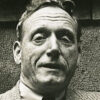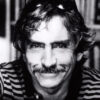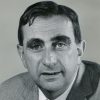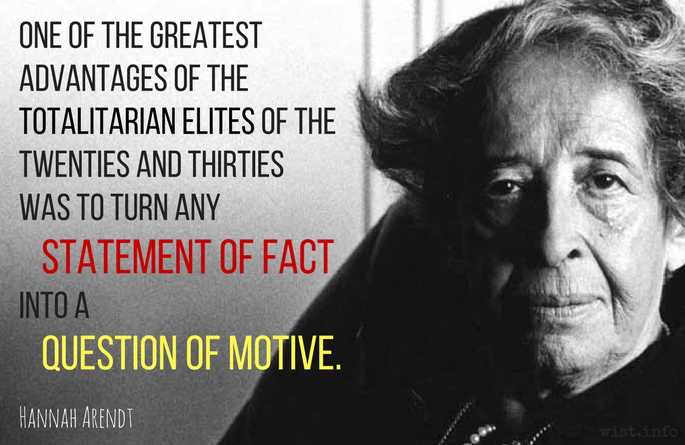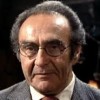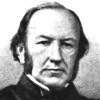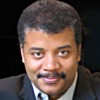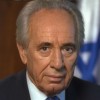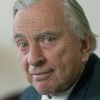Historical sense and poetic sense should not, in the end, be contradictory, for if poetry is the little myth we make, history is the big myth we live, and in our living, constantly remake.
Robert Penn Warren (1905-1989) American poet, novelist, literary critic
Brother to Dragons, Foreword (1953)
(Source)
Quotations about:
fact
Note not all quotations have been tagged, so Search may find additional quotes on this topic.
A play is fiction — and fiction is fact distilled into truth.
Edward Albee (1928-2016) American playwright
In Elenore Lester, “Albee: I’m Still in Process,” New York Times (1966-09-18)
(Source)
When asked whether his plays were autobiographical.
Our task as historians is to make past conflicts live again; not to lament the verdict or to wish for a different one. It bewildered me when my old master A. F. Pribram, a very great historian, said in the nineteen-thirties: “It is still not decided whether the Habsburg monarchy could have found a solution for its national problems.” How can we decide about something that did not happen? Heaven knows, we have difficulty enough in deciding what did happen. Events decided that the Habsburgs had not found a solution for their national problems; that is all we know or need to know. Whenever I read the phrase: “whether so-and-so acted rightly must be left for historians to decide,” I close the book; the writer has moved from history to make-believe.
A. J. P. Taylor (1906-1990) British historian, journalist, broadcaster [Alan John Percivale Taylor]
Trouble Makers: Dissent Over Foreign Policy 1792-1939 (1957)
(Source)
A fact is a simple statement that everyone believes. It is innocent, unless found guilty. A hypothesis is a novel suggestion that no one wants to believe. It is guilty, until found effective.
Edward Teller (1908-2003) Hungarian-American theoretical physicist
Conversations on the Dark Secrets of Physics, ch. 5 (1991) [with Wendy Teller, Wilson Talley]
(Source)
The ideal subject of totalitarian rule is not the convinced Nazi or the convinced Communist, but people for whom the distinction between fact and fiction (i.e., the reality of experience) and the distinction between true and false (i.e., the standards of thought) no longer exist.
Hannah Arendt (1906-1975) German-American philosopher, political theorist
The Origins of Totalitarianism, Part 3, ch. 13 “Ideology and Terror” (1951)
(Source)
One of the greatest advantages of the totalitarian elites of the twenties and thirties was to turn any statement of fact into a question of motive.
Hannah Arendt (1906-1975) German-American philosopher, political theorist
(Spurious)
This is frequently cited to Arendt, often to The Origins of Totalitarianism, (1951), but is not found as such in her works. The source appears to be a paraphrase of Arendt in a 1999 New Yorker article.
Stuart Elden suggested the following from The Origins of Totalitarianism, Part 3, ch. 11, might be original quotation the paraphrase was built on, though the overall meaning is different:
The elite is not composed of ideologists; its members’ whole education is aimed at abolishing their capacity for distinguishing between truth and falsehood, between reality and fiction. Their superiority consists in their ability immediately to dissolve every statement of fact into a declaration of purpose.
No facts are to me sacred; none are profane; I simply experiment, an endless seeker, with no Past at my back.
Ralph Waldo Emerson (1803-1882) American essayist, lecturer, poet
“Circles,” Essays: First Series (1841)
(Source)
No fact in the world is instant, infinitesimal and ultimate, a single mark. There are, I hold, no atomic facts. In the language of science, every fact is a field — a crisscross of implications, those that lead to it and those that lead from it. We condense the laws around concepts. Science takes its coherence, its intellectual and imaginative strength together, from the concepts at which its laws cross, like knots in a mesh.
When we meet a fact which contradicts a prevailing theory, we must accept the fact and abandon the theory, even when the theory is supported by great names and generally accepted.
You get to say the world is flat because we live in a country that guarantees your free speech, but it’s not a country that guarantees that anything you say is correct.
Neil deGrasse Tyson (b. 1958) American astrophysicist, author, orator
Interview, “The Colbert Report, (10 Mar 2014)
(Source)
If a problem has no solution, it may not be a problem, but a fact, not to be solved, but to be coped with over time.
Shimon Peres (1923-2016) Polish-Israeli politician, statesman
(Attributed)
Widely attributed to Peres in different sources. Quoted in the Wall Street Journal (7 Feb 2001). Donald Rumsfeld says that Peres made the observation to him.

